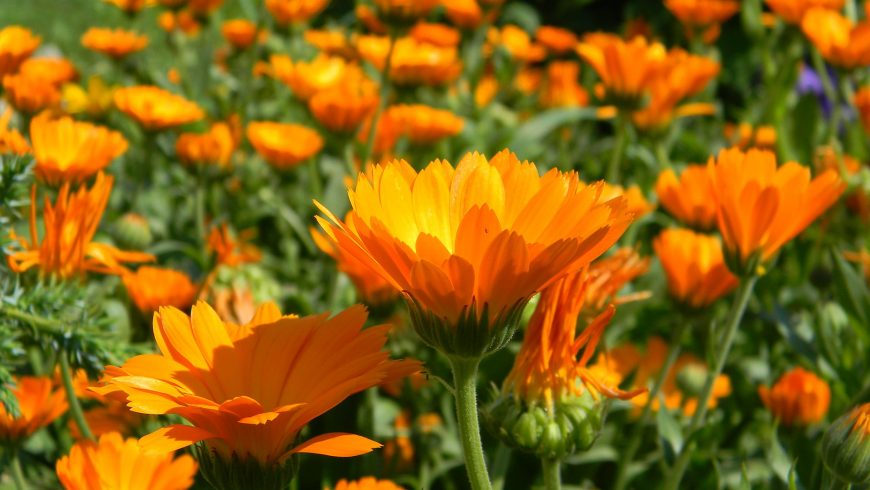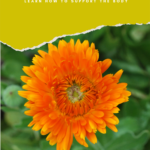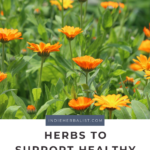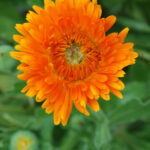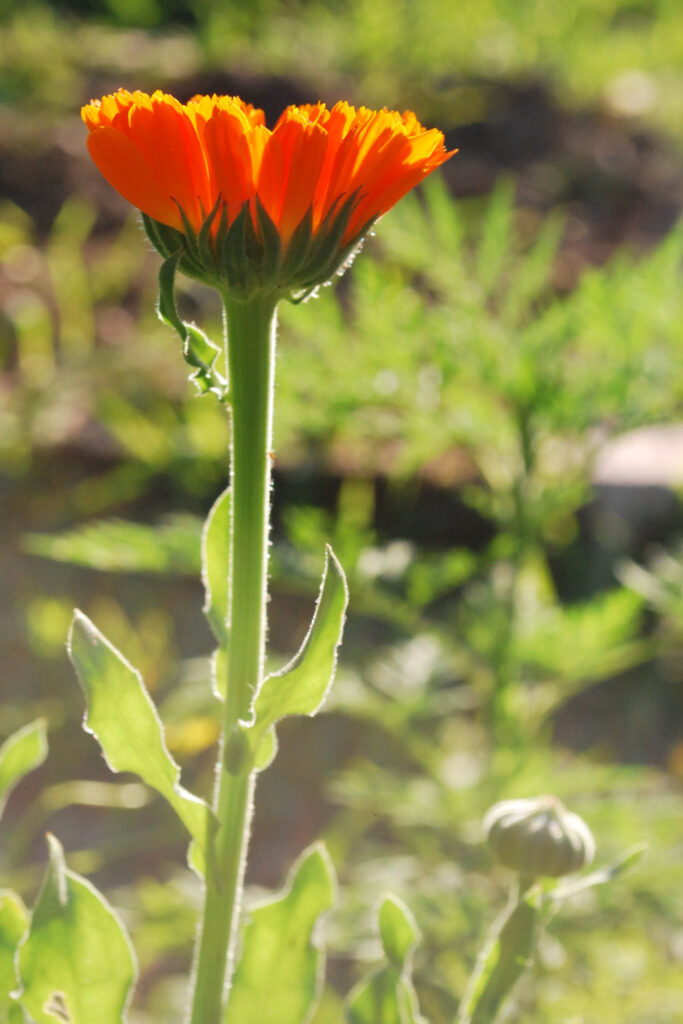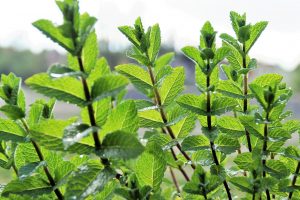Links contained in this post and elsewhere on my website may include affiliate links. When you make a purchase through these links, I earn a commission at no additional cost to you. I only link to products and services that I love - and that I think you will love, too!
Not all herbs that support healthy immunity support the body in the same way. Do you know the difference between herbs for short- and long-term immune system support? This article is an overview of herbs for immune support including when herbs might be beneficial and when they might need to be avoided.
Let’s also explore the topic of lymphatic herbs. This class of herbs is often overlooked for supporting immunity but can be very helpful for nourishing and supporting the body’s natural processes.
When is herbal immune support helpful?
Here are a few examples of when herbal immune system support might be helpful:
- Supporting an immune system easily triggered by seasonal or environmental challenges.
- Supporting everyday healthy immune function
- Many herbalists believe that herbs can also be valuable when used in a supportive role for someone undergoing treatment for cancer. Herbal Medicine, Healing, and Cancer by Arlene Valentine and Donald Yance is one of the best resources I know of for anyone interested in learning more about this topic. (#affiliate)
When herbs for immune support shouldn’t be used
Here are some examples of when herbal support for the immune system is not a good idea.
- Instead of an Epi-pen and emergency medical treatment for anaphylaxis.
- After having an organ transplant or when there is a need for anti-rejection medications.
- If an autoimmune disease has been diagnosed, herbs that stimulate the immune system may be contraindicated for some individuals.
- It is probably best not to combine herbs that stimulate the immune system with medications that suppress it.
These are mostly common sense. In some cases, herbs are simply not the best choice to address the situation. A classic example is a severe, life-threatening allergy. Emergency care is the best option for that- not herbs! In other cases, using herbs would contradict more pressing needs the individual has, such as after an organ transplant.
Types of herbs for immune support
So what herbs are good for immune system support? Most of these herbs fit into one of two groups. They either provide short-term support or long-term support. In most cases, they have been studied for having a measurable influence on immune system function.
However, a more traditional approach using lymphatic herbs can also be synergistic with the body’s natural processes. Here are some examples of each.
Herbs for short-term use
Short-term immune system support herbs are plants we turn to when our bodies are showing signs of an acute imbalance. When we want to support immunity for a few days at a time, these herbs are good choices.
Plants that have a traditional reputation for clearing heat like andrographis, sida, and bidens fall into this category. As an herbalist, I might use these herbs for up to seven days at a time as needed before re-evaluating to determine whether needs have changed.
White peony root is another excellent herb for short-term immune support. Read more about this herb in my article White peony for immune support.
Long-term herbal immune support
There are also many herbs capable of providing support for chronic imbalances. They are useful as traditional tonics for several months at a time. Eleuthero, astragalus, rhodiola, and other adaptogens are excellent examples of this category.
Adaptogens have a reputation for nourishing the body on many levels. They help the body bounce back from stressors by supporting our natural resiliency.
Curious about why I haven’t mentioned echinacea or goldenseal yet? Read on to find out why!
Exploring lymphatic herbs
Our lymphatic system plays a big role in immunity. Herbs like cleavers, violet, calendula, and redroot are traditional support for this vital system. When we get sick, we can sometimes feel this aspect of our immunity at work when our lymph nodes become swollen.
According to traditional practice, the swelling is excessive Dampness. Sometimes it’s accompanied by Heat. Lymphatic herbs are often drying or balancing for fluid levels in the body. They may be neutral, Warm, or Cool in temperature.
Goldenseal and echinacea
Working with lymphatics is a very different approach from reaching for Oregon grape or goldenseal when we want immune support. These herbs are often used out of a misunderstanding about their “antibacterial” nature.
Both of these herbs contain berberine. This substance does have antibacterial properties. However, the berberine in both of these herbs is poorly absorbed by the bloodstream. So although berberine may have an antibacterial action in a petri dish, unless it comes into direct contact with the infection in the body it is unlikely to help.
This means you can’t drink goldenseal tea and expect it to help with a sinus infection. However, both herbs are also cooling and moistening. To a degree, they are also astringent. They have an affinity for mucosal linings (like the intestines and throat) which can help to rebalance the body when there is a lot of Heat present in these tissues.
Echinacea (another very popular immune-supportive plant) is actually a lymphatic herb. It was traditionally used for symptoms associated with blood poisoning (what we currently understand to be sepsis). Personally, I found echinacea very helpful when recovering from a severe kidney infection, but have never found it useful during cold and flu season.
Learn more about herbs and infections in my article What you really need to know about herbal antibiotics.
Learning more about lymphatic herbs
The lymphatic herbs I prefer to keep on hand include prickly ash, red root, and cleavers. As with any herbs, I think it’s important to study them in depth if you plan to add them to your home herbal supplies. I like creating materia medica pages as a way to keep track of the herbs I’ve studied.
The Herbarium by the Herbal Academy is a useful online database of articles and herbal monographs that I highly recommend (#affiliate). Their information is well-researched and beautifully presented.

There are also good articles online to help you explore the topic of lymphatic herbs. Here are a few I’ve pulled together.
- Lymphatic herbs explained by the Naturopathic Herbalist
- Red Root, an article by Medicine Woman’s Roots
- A wonderful article on calendula by Whispering Earth
- 3 ways to use cleavers for spring cleansing (an article I wrote for the Herbal Academy. Affiliate link- I love their courses!)
